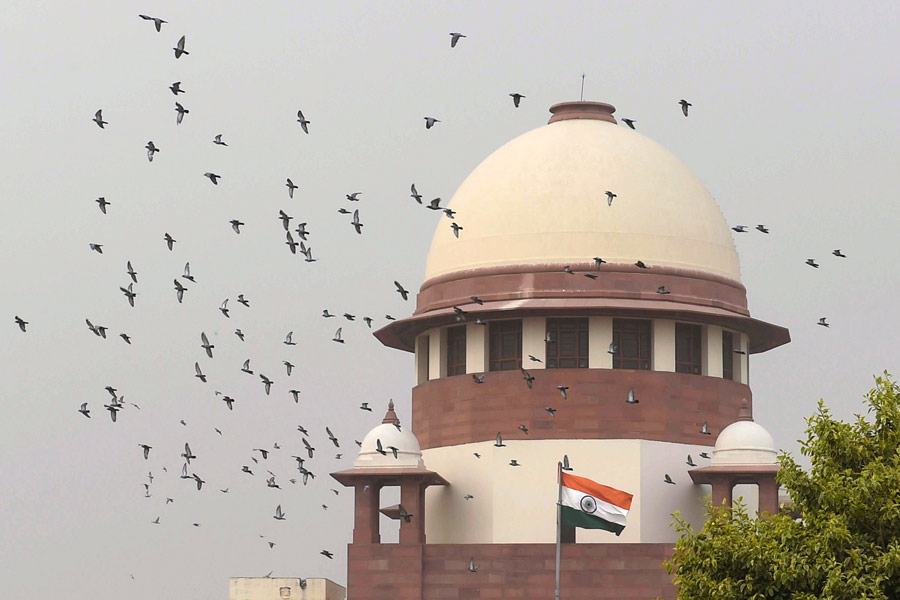The Supreme Court on Friday sought a response from the National Investigation Agency (NIA) on a plea filed by former chief of the outlawed Popular Front of India (PFI) E. Abubacker seeking release in a case registered against him under anti-terror law UAPA.
Abubacker, who was arrested by the NIA during a massive crackdown on the organisation in 2022 and is lodged in judicial custody, had approached the high court after the trial court rejected his bail application.
A bench of Justices MM Sundresh and Aravind Kumar issued notice to the NIA on Abubacker's plea challenging the Delhi High Court order during the hearing, the top court orally observed that it would only consider the question of bail on medical grounds.
The high court had on May 28 dismissed Abubacker's plea for bail.
While dismissing his appeal, the high court had said the material on record, including allegations in the charge sheet, statements of the protected witnesses, and the fact that Abubacker was earlier closely associated with SIMI, another banned outfit, showed that the prosecution's case under the Unlawful Activities (Prevention) Act (UAPA) is prima facie true.
With respect to the medical grounds, the court had said the trial court has already issued appropriate directions for his treatment and, if needed, the jail superintendent would immediately rush Abubacker to AIIMS, Delhi without having to seek any formal directions from court.
According to the central anti-terror agency, the PFI, its office bearers and members hatched a criminal conspiracy to raise funds for committing acts of terror in various parts of the country and were organising camps to indoctrinate and train their cadre for this purpose.
Abubacker claimed he is in his 70s, has Parkinson's disease, and had also undergone surgery for treatment of cancer. He contended that on merits also he was entitled to bail as the NIA has "miserably" failed to put together a case against him.
In view of the statements of the protected witnesses, the high court had observed that the allegations attributed to the appellant were "not in air" and the fact that the PFI was declared an "unlawful organisation" later was not relevant to his prosecution under UAPA.
"We have already taken note of the statements of various witnesses and at this initial juncture, we are unable to hold that weapon-training was merely for protecting the community in case there was any communal violence unleashed against them, as allegedly apprehended," it had said.
"Such statements also go on to show that objective of such weapon-training was with the idea of overthrowing the democratically elected government to replace the Constitution of India with a Caliphate Shariya Law.
"The planning of targeted killing of Hindu leaders and attacking the security forces and establishing Caliphate by 2047 would clearly indicate that the target was to challenge the 'unity and sovereignty of India' and not merely to 'overthrow the government'. Thus, the objective and manner of achieving the same, both, seem culpable'," the high court had said.
The court also said it was not impressed with the argument that the appellant was merely acting in furtherance of the ideology of the organisation.
If such ideology smacks of malafide and is replete with conspiracy related to terrorist acts, adhering to the same would also be punitive, the court said.
Pointing out that he has been incarcerated for less than two years and the case is on the verge of ascertainment of charges, the court said it expected all the accused to extend due assistance to the trial court so that arguments on charge are advanced well in time and the trial commences.
A large number of alleged PFI activists were detained or arrested in several states during the massive raids preceding the nationwide ban on the organisation in September 2022.
In near-simultaneous raids across the country as part of a multi-agency operation spearheaded by the NIA, a large number of PFI activists were detained or arrested in 11 states for allegedly supporting terrorist activities in the country.
Abubacker was arrested on September 22, 2022.
The arrests were made in states and Union Territories, including Kerala, Maharashtra, Karnataka, Tamil Nadu, Assam, Uttar Pradesh, Andhra Pradesh, Madhya Pradesh, Puducherry, Delhi and Rajasthan.
The government banned the PFI and several of its associate organisations on September 28, 2022 for five years under the stringent anti-terror law, accusing them of having links with global terror groups like the ISIS.
Except for the headline, this story has not been edited by The Telegraph Online staff and has been published from a syndicated feed.











